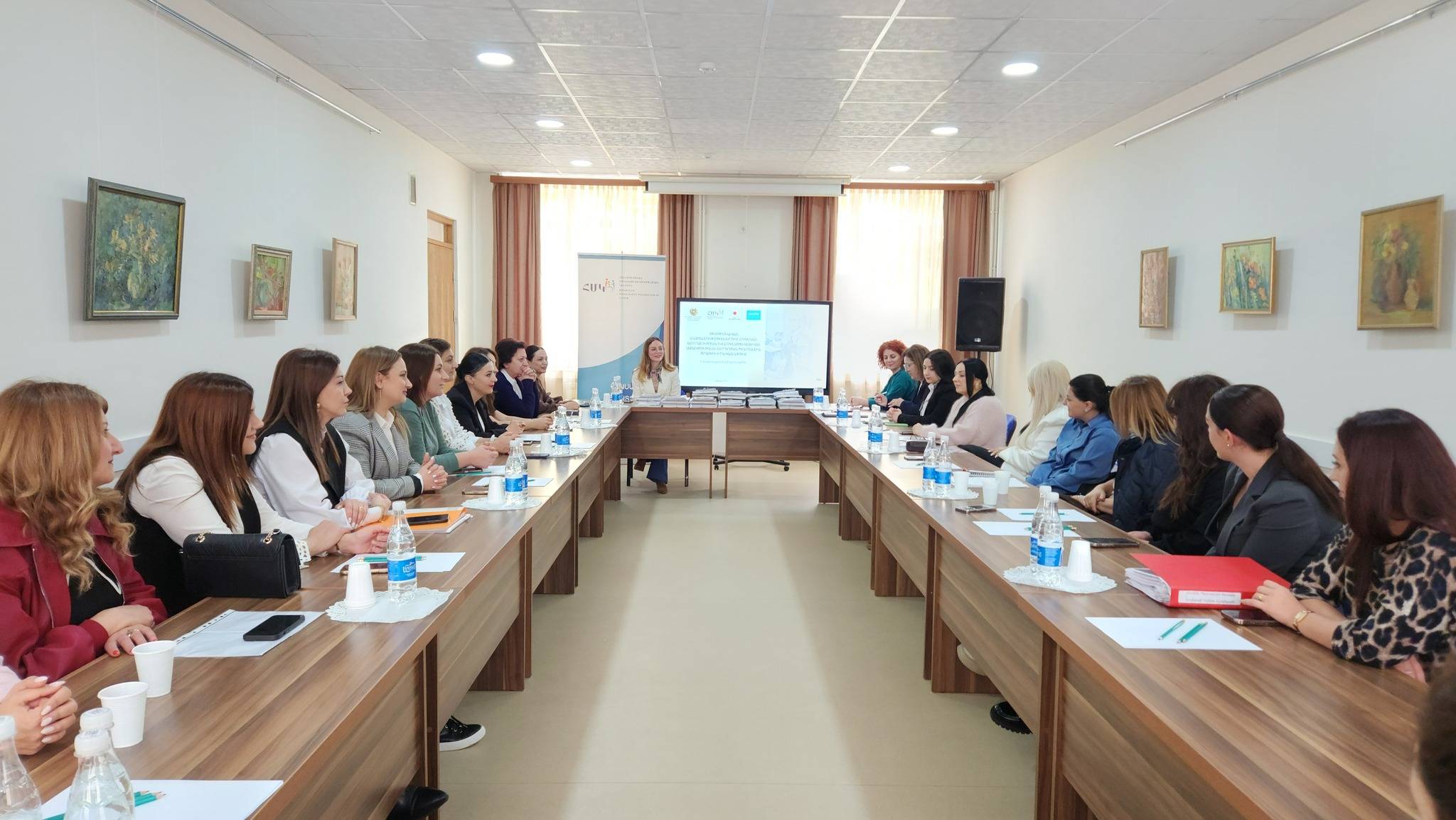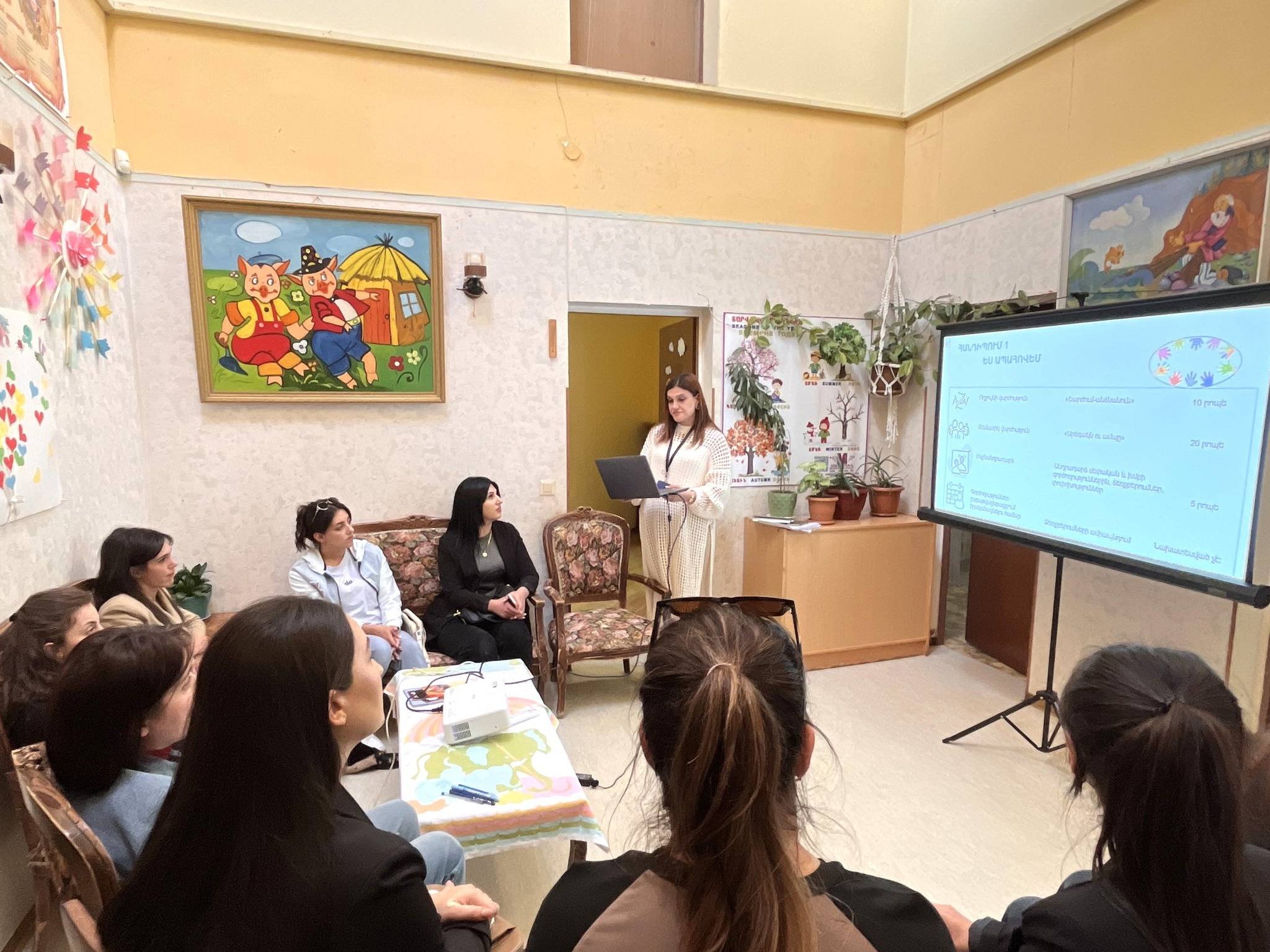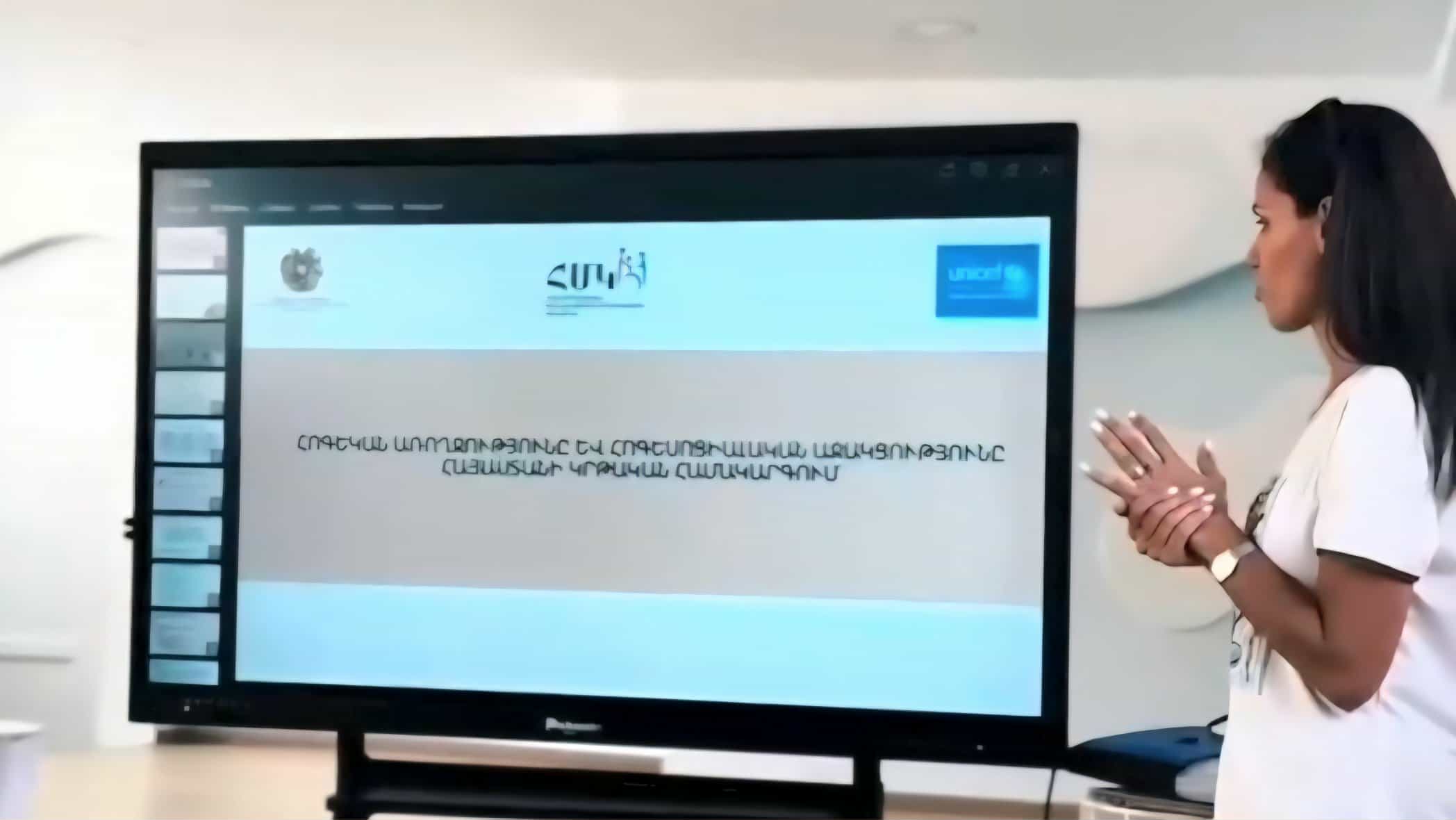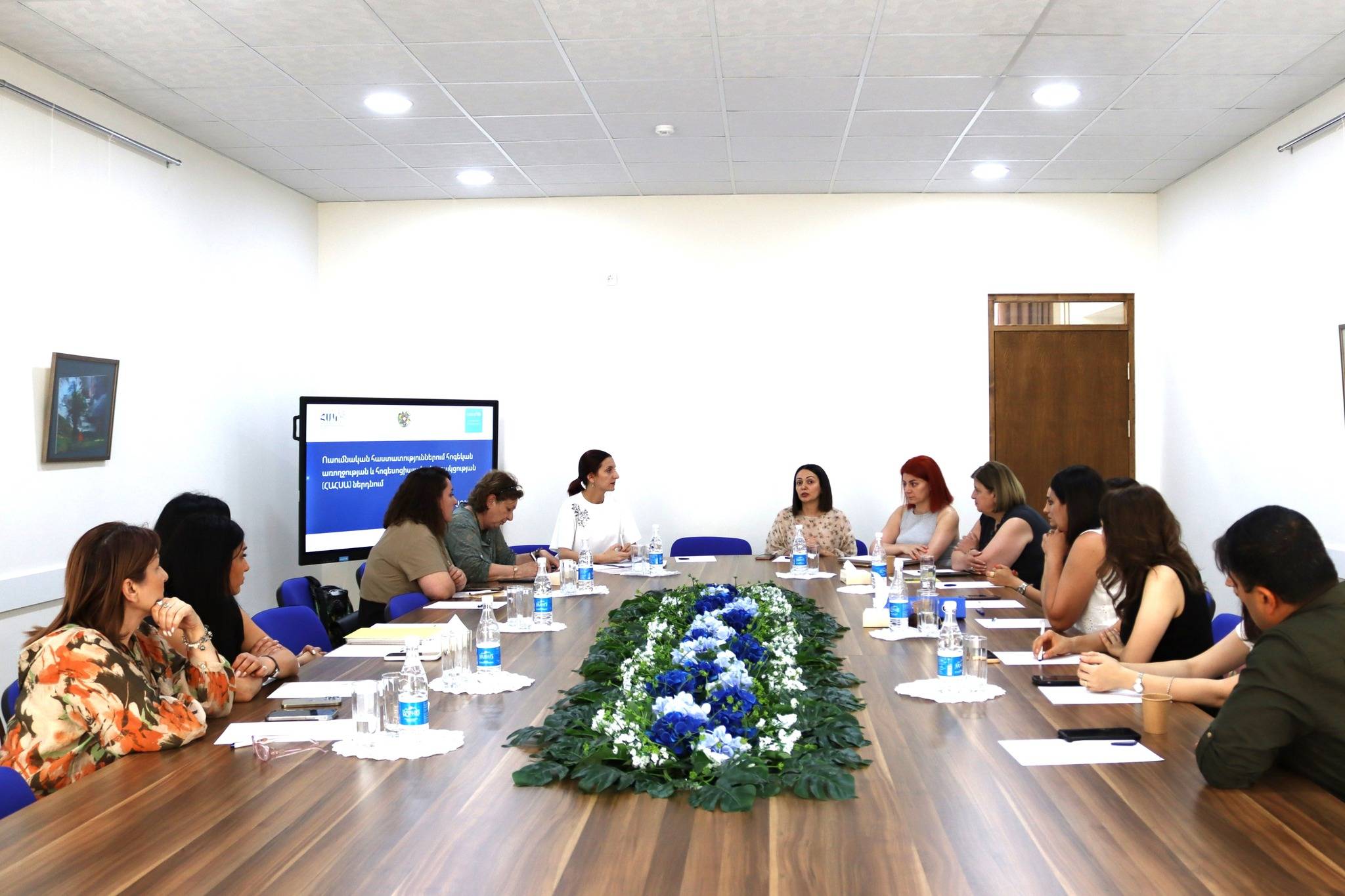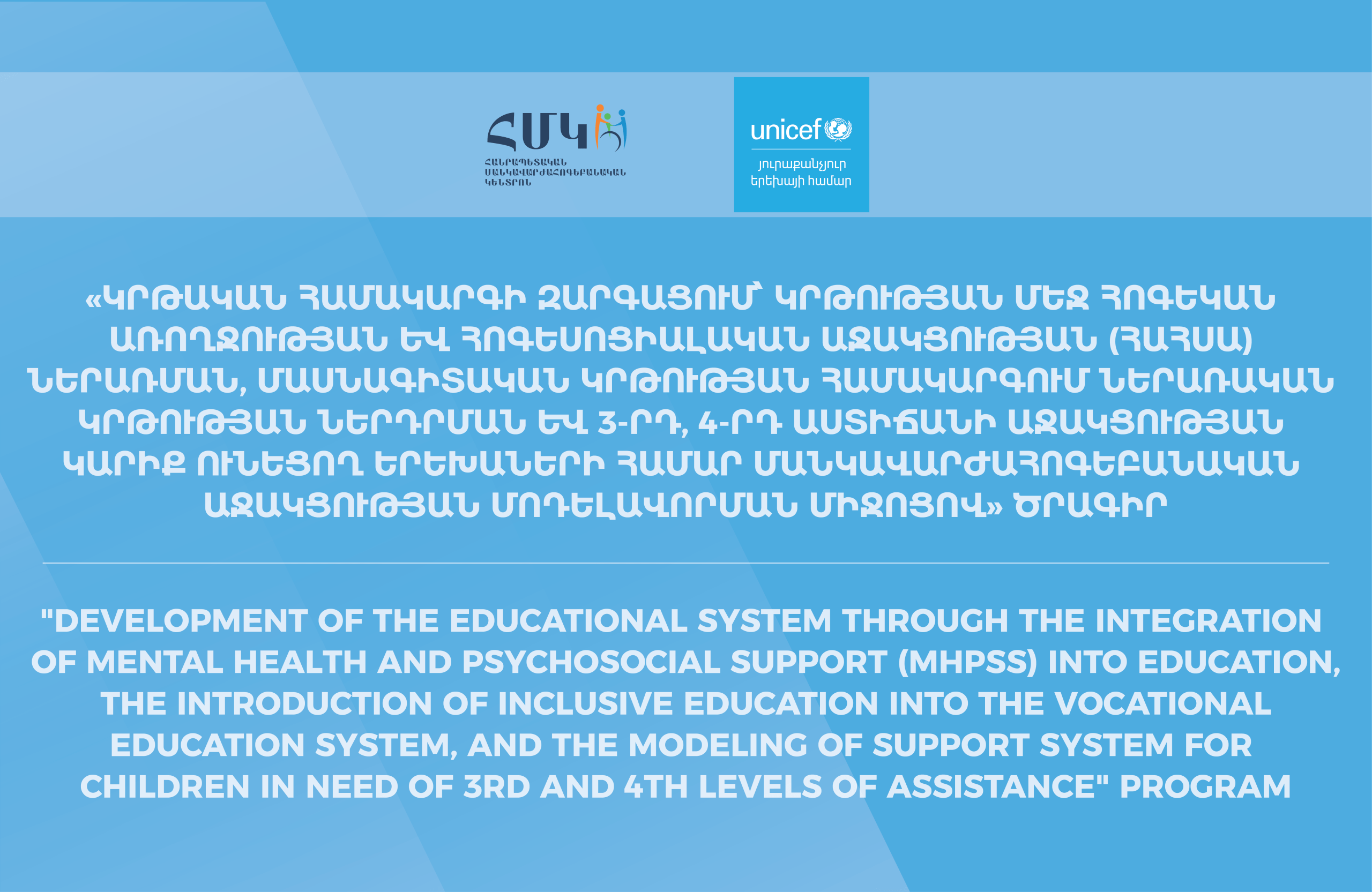 Since April 2025, the “DEVELOPMENT OF THE EDUCATIONAL SYSTEM THROUGH THE INTEGRATION OF MENTAL HEALTH AND PSYCHOSOCIAL SUPPORT (MHPSS) INTO EDUCATION, THE INTRODUCTION OF INCLUSIVE EDUCATION INTO THE VOCATIONAL EDUCATION SYSTEM, AND THE MODELING OF SUPPORT SYSTEM FOR CHILDREN IN NEED OF 3RD AND 4TH LEVELS OF ASSISTANCE” PROGRAM has been implemented in cooperation with the RA Ministry of Education, Science, Culture and Sports, UNICEF, and the Republican Pedagogical-Psychological Center.
Since April 2025, the “DEVELOPMENT OF THE EDUCATIONAL SYSTEM THROUGH THE INTEGRATION OF MENTAL HEALTH AND PSYCHOSOCIAL SUPPORT (MHPSS) INTO EDUCATION, THE INTRODUCTION OF INCLUSIVE EDUCATION INTO THE VOCATIONAL EDUCATION SYSTEM, AND THE MODELING OF SUPPORT SYSTEM FOR CHILDREN IN NEED OF 3RD AND 4TH LEVELS OF ASSISTANCE” PROGRAM has been implemented in cooperation with the RA Ministry of Education, Science, Culture and Sports, UNICEF, and the Republican Pedagogical-Psychological Center.
The following activities will be carried out within the framework of the Program:
- Development of an action plan and schedule for the introduction of mental health and psychosocial support in the field of education (school, preschool educational institution) for the next three years with the support of the Government of Japan.
- Ensuring the continuity of the pilot program for children with special educational needs and 3rd and 4th level of support due to intellectual and communication problems until the end of the 2024-2025 academic year, as well as developing a module and implementing trainings aimed at strengthening the capacities of teachers working with children needing 3rd and 4th level support.
- Support for the implementation of inclusive education in the field of vocational education and training: development of procedures and legal regulations, preparation of trainings and guidelines.
- Optimization of the process of providing reasonable accommodations for students with special educational needs: mapping by type, creating a needs-based checklist, developing a training module, implementing training, as well as developing a monitoring toolkit for pedagogical-psychological support services for students with special educational needs in general educational institutions, accessibility of the physical environment, and ensuring reasonable accommodations for students.



